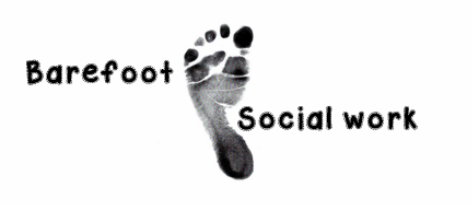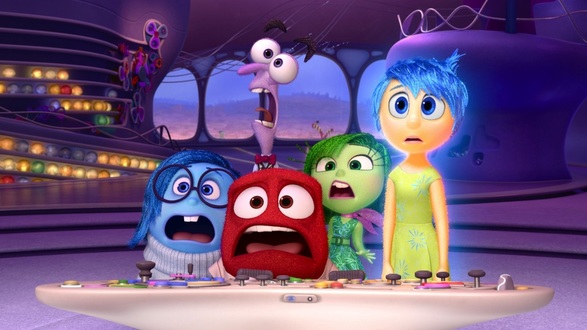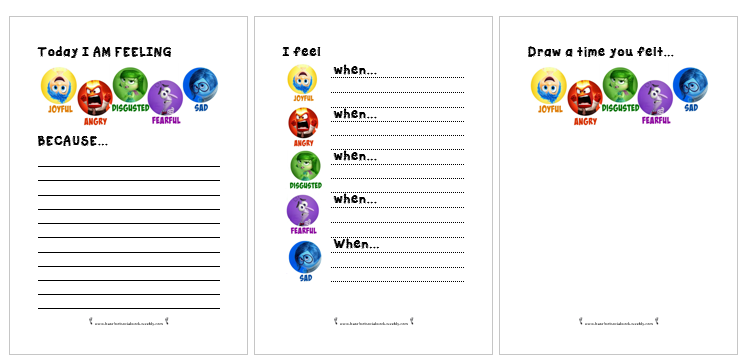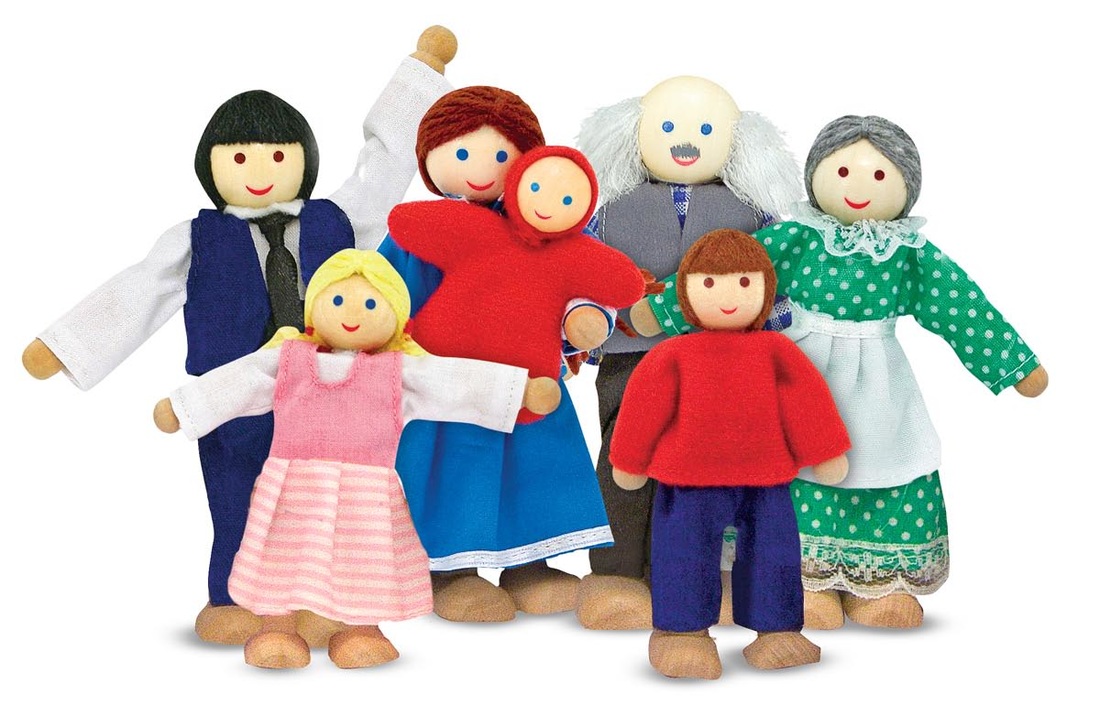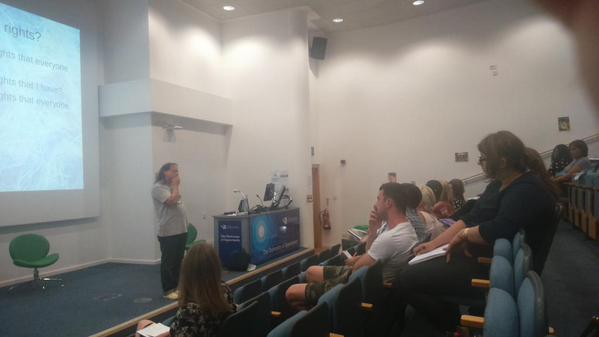|
A year or so ago, I remember reading an article on The New Social Worker by Addison Cooper about ‘How Movies Can Help in Working with Kids’. If you haven’t read it, I recommend you do. It won’t take very long. Basically, she talks about how ‘movies can provide an excellent and easy way to connect with clients’ and ‘provide them with understandable analogies’. I think most Children’s Social Workers draw upon popular culture in their work. Cbeebies characters provide a universal conversation starter for most pre-schoolers and The X Factor is usually good with Teens. But we can also, as Addison points out, use them to help children understand their own emotions and circumstance. This summer’s movie Inside Out has received fantastic reviews and looks like a brilliant resource and tool for Social Workers. Take a look at the trailer if you haven’t already seen it. An article in The Guardian calls it a crash course in PhD Philosophy of self. It tells the story of 11 year old Riley, who moves to a new city and tries to make sense of her environment. The central characters Joy, Sadness, Anger, Fear and Disgust live in Headquarters, the control centre inside Rileys mind. Of course, in reality, there are more than just five emotions but that would have made the storyline a little too complicated. Whilst initially viewers may perceive most to be negative emotions, as the movie progresses we see how they work together and play an important role in keeping Riley safe. A message that Social Workers will understand and be able to relate to in their practice. During one scene Joy tells Sadness, drawing a small circle around the blue character, “your job is to make sure that all the sadness stays inside of it”. I find this quite profound as it is often what we see children encouraged to do when they are struggling with their emotions. Sadness and Anger can manifest in all sorts of ways that society perceives to be negative. Schools and classrooms aren't always set up to deal with the individual emotional needs of a pupil when their behaviour is seen to be impacting upon the learning of others around them. So, they are encouraged to ‘behave’, ‘be quiet’ and ‘calm down’. Hopefully Inside Out will help others to interpret children’s actions and foster empathy. It might also resonate with parents struggling to understand their child and how they can best support them. I’ve put together a couple of resources that you might like to use. Please feel free to download and share. Amazon also sell figures that could be incorporated into direct work or you can print off some of the colouring pages from the Disney website.
1 Comment
As some of you will already know, I am a Social Worker and Blogger here at Barefoot Social Work . I am particularly interested in adverse childhood experiences and finding ways in which children and their families can be supported to mitigate their negative long term affects. I am passionate about supporting children to remain in the care of their family and I believe strongly that local services should be available to make that happen. That is why I am particularly concerned (and have blogged) about austerity and the impact this will have on vulnerable children and their families. I believe Social Workers should help shape the political debate about issues that affect the people we support. We can do this in a number of ways: private conversations, engaging with media outlets, campaigning, petitioning and social research (to name a few).
Last week I was offered the very exciting opportunity to undertake a Phd at Manchester Metropolitan University. My study will look at 'Enabling Families in Austere Times' and will include a detailed ethonographic exploration of Home Start in England. The austerity narrative dominates the shaping of social care services and families’ experiences of care within Britain. Anxiety and insecurity are prevailing aspects of contemporary life and research highlights the negative impact on low and middle-income families. Government policy and the recent conservative budget increasingly emphasises the importance of ‘good’ parenting, with parents being expected to be responsible citizens, bear the impact of austerity measures, and take the blame for a myriad of societal issues. Third sector organisations play significant roles in the delivery of social care, particularly within a landscape of welfare state retrenchment and pressure on support services. However, there are significant gaps in empirically-based research that clarifies the distinctiveness of organisations. Home-Start has been the focus of limited research focused on enhanced children’s school readiness (Love et al., 1976) and improvements in children’s behaviour (Hermans et al., 2013). Existing research does not focus on the role that Home-Start performs in local communities, the diversity of families or the experiences of volunteers. In 2014 my research supervisor, Jenny Fisher and colleagues, undertook a small-scale evaluation of Home-Start Manchester South. This identified that they provide an invaluable support for families experiencing difficulties across South Manchester through the role of volunteers. The main aim of my research is to build upon the previous research and interrogate the impact of Home-Start on families in austere times. This will develop an empirically and theoretically sound understanding of family support and characteristics of Home-Start in supporting families. If you have followed the news around Kids Company over the last couple of weeks you will understand how important it is that organisations are accountable to those that invest personally and financially, and are able to evidence outcomes and efficacy. I am very excited about this opportunity and I am honoured that Manchester Metropolitan University and Home Start are supporting this research. I will start in September and would really appreciate your support. Please take a look at my fundraising page. If anyone is interested in following the progress of my research, I will be posting regular updates on my blog . Please follow me on twitter and facebook . Thank you x Family, What Family? Unpicking the tangled knot of human rights in child protection practice1/7/2015 Last night I attended a seminar hosted by BASW and the University of Wolverhampton. It was called 'Family, What Family? Unpicking the tangled knot of human rights in child protection practice' and delivered by Allan Norman. You might have heard of Allan before. He qualified as a social worker in 1990, and as a solicitor in 2000. He specialises in the law relating to the practice of social work, representing both social workers and service users through his own legal and independent social work practice Celtic Knot. He's also an Associate Lecturer at the University of Birmingham and now works as BASW’s lead on Policy, Ethics and Human Rights and International matters.
The seminar was fascinating and I came away with a greater clarity regarding the impact child protection processes have on both the rights of the child and family. Allan started by saying that Social Work as an international profession is fundamentally about human rights. The International Federation of Social Workers say just that in the Global Definition of Social Work. But for those working in areas of safeguarding that commitment to both positive and negative rights becomes complicated. We also find that absolute rights always trump qualified rights. So, a child's absolute right under article 3 ("No one shall be subjected to torture or to inhuman or degrading treatment or punishment") trumps the parents qualified right under article 8 ("Right to respect for private and family life"). Allen questioned whether low level neglect was sufficient for article 3 to be engaged. No doubt the impact of austerity and the increasing threshold for support and preventative services will muddy these waters even more. Earlier today I read that all four UK Children’s Commissioners have called on the UK Government to stop making cuts to benefits and welfare reforms in order to protect children from the impact of its austerity measures. Tam Baillie, Commissioner for Children and Young People Scotland, said "For one of the richest countries in the world, this is a policy of choice and it is a disgrace. It is avoidable and unacceptable." It is right that children are safeguarded from significant harm, but removing them from their family is a hugely draconian step which should be reserved as an absolute last resort. How many families might still be together if the government prioritised funding for welfare, support and preventative services? In individual cases it may be that there are no other support options; but as a society do we not have a moral duty to make that support available? As a society are we failing in our duty to meet the positive rights enshrined in the Universal Declaration of Human Rights? It's food for thought... Allan has written prolifically on the subject of Human Rights and child protection. If you're interested in reading more, take a look at some of these: ‘Working Together 2013 ignores human rights and we must act on this’ Disappearing act Dealing with the inconvenient human rights of others You might also like some of these (Not by Allan!): We Are All Born Free: The Universal Declaration of Human Rights in Pictures I Have the Right to Be a Child Ethics and Values in Social Work (Practical Social Work Series) BASW Human Rights Policy (Sort of by Allan!) |
AuthorI'm a Qualified Children's Social Worker with a passion for safeguarding and family support in the UK. Archives
August 2016
Categories
All
|
